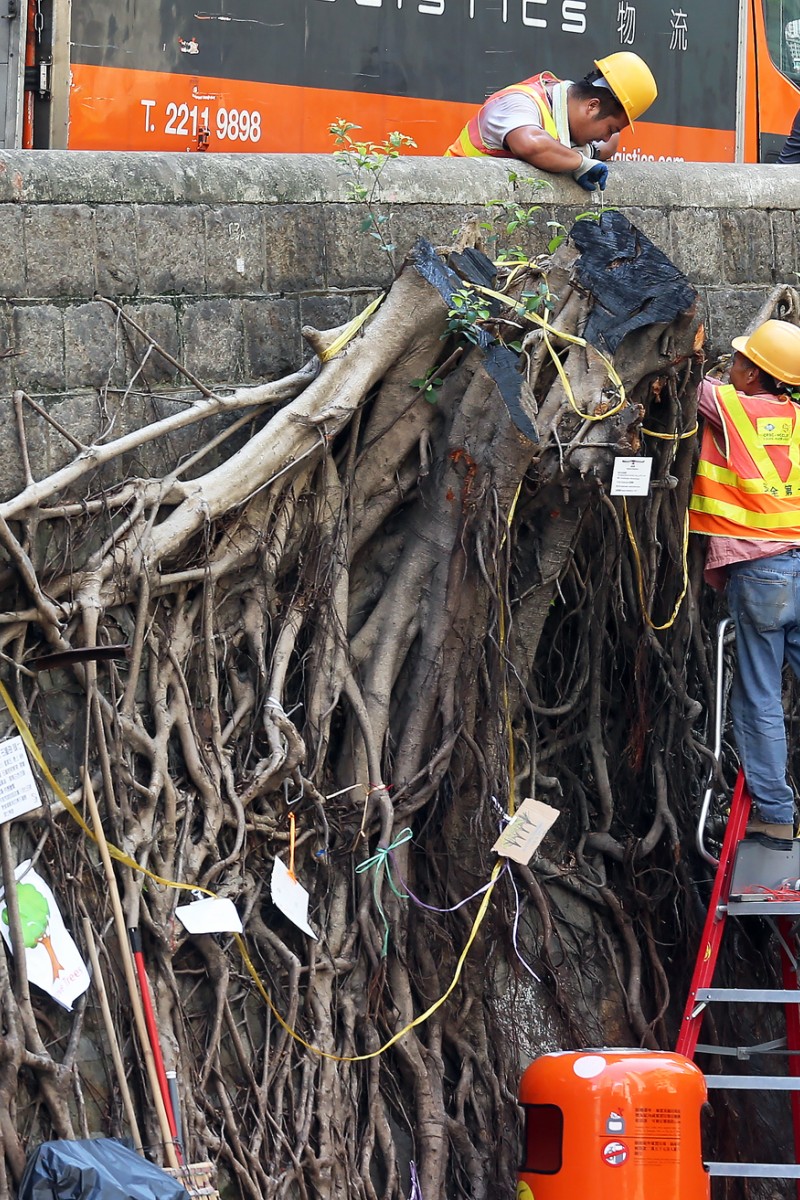
Are trees at the root of political agendas in Hong Kong?
 The cutting down of trees on Bonham Road in August.
The cutting down of trees on Bonham Road in August.Four trees were recently cut down on Bonham road. Is this just about chopping down trees or is there a political message to be taken from this?
The government said “There were signs of unstable and worsening support of the remaining four stonewall trees, and the potential risk of collapse could not be entirely alleviated by extensive pruning.” I have to question this. Every tree has the “potential risk” of collapsing, even firmly rooted ones. If we start removing every tree that is a “potential” risk, there won’t be any trees left.
Even if the trees did pose a danger to the public, the government didn’t have enough solid evidence to support removing them. Without solid evidence, any tree can be uprooted.
Some say there are hidden agendas behind tree removal. A lot of people criticised the government for taking down the trees overnight, and for only sending notifications to district counsellors from the pro-establishment camp.
It might seem silly to think that trees are involved in politics, but everything has a political agenda these days. With trees, it can be an excuse to clear the protected land for other purposes.
If nothing else, this highlights the public’s lack of trust and scepticism of the government.